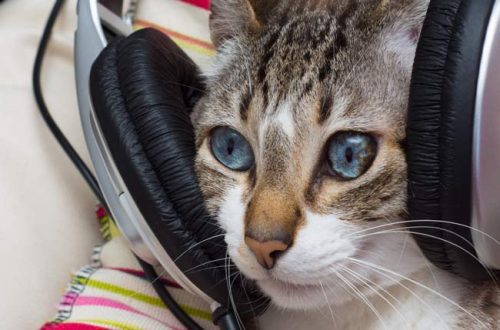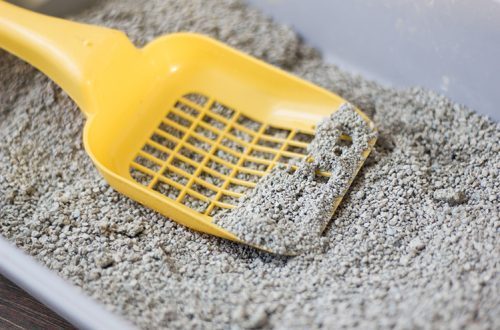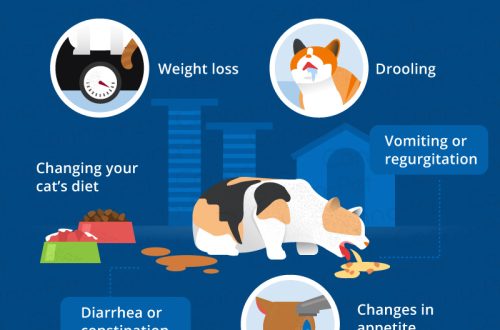
Cat metabolism: how to keep your pet healthy
Metabolism in cats is a complex chemical process in the body that is designed to break down food, in particular proteins, carbohydrates and fats, for energy. The metabolic process of the average cat can be influenced by many factors: hormonal balance, age, spaying or neutering, presence of diseases and disorders, physiological conditions such as pregnancy or lactation, diet plan and level of physical activity. How can metabolism change and why do cats have metabolic disorders?

Contents
Metabolism changes with age
Understanding a cat’s metabolism and the factors that affect it can help cat owners realize the importance of providing their pets with proper nutrition and regular physical activity.
During the first year of life, kittens grow rapidly. Babies have very fast metabolisms, so a complete, balanced kitten food, such as Hill’s Science Plan Kitten Healthy Development, is recommended. After spaying or neutering, your veterinarian may recommend reducing the amount of food you eat, as there is a perception that these procedures slow down the metabolism.
Because obesity is much easier to prevent than to treat, annual veterinary checkups and weight assessments are important.
If necessary, the veterinarian will make changes to the cat’s diet. He may recommend food based on her age and the American Animal Hospital Association body condition score. It is a numerical score that helps visually classify a cat as underweight, overweight, or normal/ideal weight.
Middle-aged cats – from 4 to 9 – require special care and attention. During this period, metabolism slows down and calorie requirements decrease. Owners should be especially vigilant in tracking their pet’s weight and providing daily exercise and play that keeps them moving.
As cats reach old age, their metabolic rate and energy requirements increase again. At this stage, maintaining muscle mass is very important. An older cat should be fed an age-appropriate diet, such as Hill’s Science Plan Mature Adult 7+, to provide a high quality, easily digestible source of protein.

Relationship between metabolism and overall health and weight
Professional nutrition and knowledge of a cat’s metabolic rate are critical, as both determine her weight and overall health. Pets with slower metabolisms are prone to obesity. According to the Association for the Prevention of Obesity in Pets, in the US, 60% of cats are considered clinically significant obese.
Being overweight brings with it a host of health problems such as diabetes, arthritis, cancer, respiratory disease, and bladder stones. While the pleading gaze on the furry face can indeed be hard to resist, the cause of the current obesity crisis lies primarily in the overfeeding of pets by pet owners.
Getting the right amount of calories and exercise will help ensure your cat is at a healthy weight. If the veterinarian advises that she needs a weight loss program, she will also suggest steps to help her reach optimal weight slowly and safely.
It is very important to consult with a veterinarian before starting a weight loss program for a cat. Sudden and rapid weight loss in pets can lead to life-threatening lipidosis, i.e. fatty liver disease. If your cat is overweight and hasn’t eaten for more than a day, contact your veterinarian immediately.
If eating a low-calorie diet hasn’t brought the desired results, a different approach may need to be taken. Hill’s Prescription Diet Metabolic Cat Food works naturally with your pet’s unique metabolism to help prevent weight gain after weight loss. It also helps regulate appetite and maintain lean body mass. Over 80% of the cats in the home study lost weight with Hill’s Prescription Diet Metabolic. Being overweight can affect your pet’s quality of life and its relationship with the family. It also has an impact on game duration, mobility and overall health throughout life.
Weight fluctuations and their relationship with metabolism
Cats with slower metabolisms burn fewer calories and store more fat than their faster metabolizing counterparts. There are a number of medical problems that affect a pet’s metabolism and lead to weight loss or weight gain. A sudden change in weight is often a sign of a problem that prompts the owner to take the cat to the veterinarian:
- Hyperthyroidism leads to an accelerated metabolism, and cats lose weight despite a normal or often increased appetite.
- Rapid weight loss and blood sugar imbalances can be caused by diabetes, which is more common in overweight cats, according to the Cornell Cat Health Center.
- Cancer cachexia is a common and complex syndrome caused by cancer. Because of it, the cat loses fat and muscle tissue at the same rate, according to PetCoach. Because cancer often develops gradually, this metabolic disorder in a cat can be the first warning sign of a problem.
Maintaining a healthy metabolism is a complex process that is important for owners, as a cat’s weight is an indicator of well-being. The older the pet becomes, the more examinations are required from a veterinarian and the more carefully you need to monitor his appetite.
See also:
What to do if a cat is obese?
Hyperthyroidism in cats and cats: symptoms and treatment
Dental disease in cats: symptoms, signs and causes
Choosing a veterinarian





